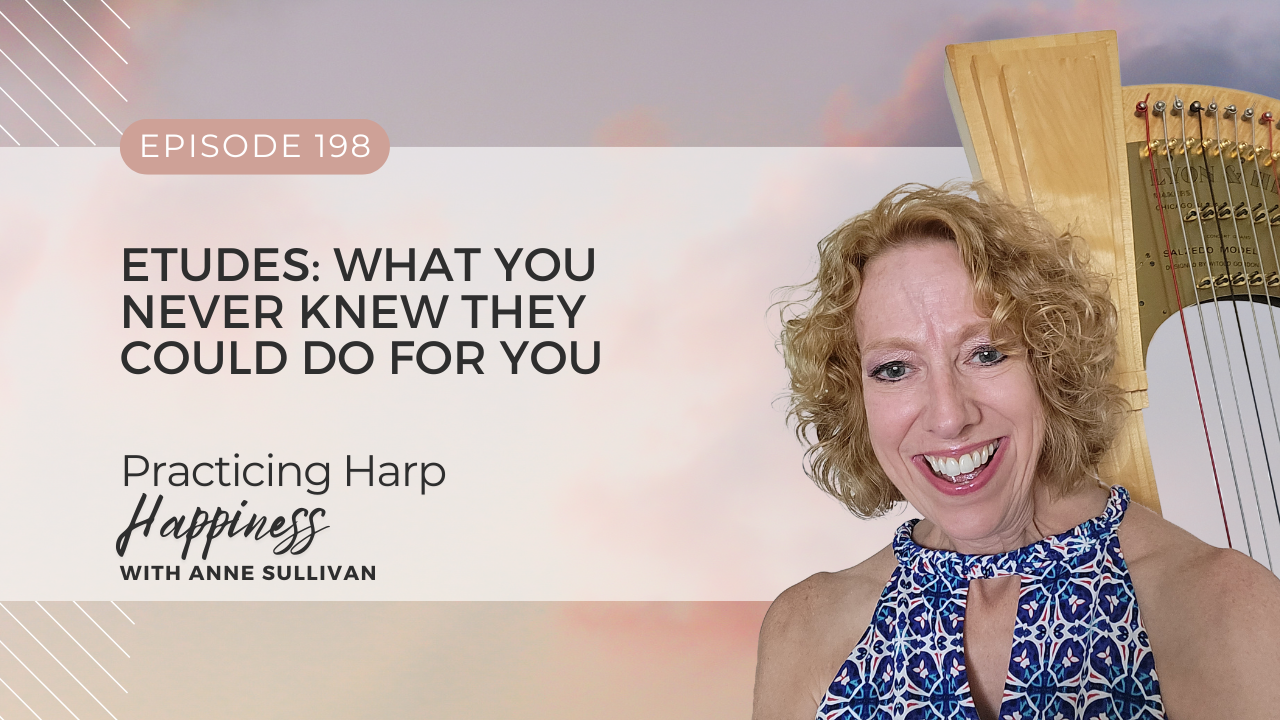#198: Etudes: What You Never Knew They Could Do For You

Fact number one: harp technique is hard. That’s a given. Making our fingers steady, stable and strong enough to play in mid-air, defying gravity with every pluck, is very challenging. That’s a fact.
Fact number two: our technique is a major factor in our playing. It enables us to play the music we want to play. Or it limits us. If our fingers can’t play it, we can’t play it. It’s that simple.
Fact number three: If you feel like your technique is holding you back, there are ways to fix that. And today I want to suggest two ways you might not have explored. These are two ways to use etudes and I think you will find that what we’re talking about today is not the usual etude practice.
I often talk about etudes as the missing link between the exercise drills that we do and the music we play. They provide a way to use a single technical skill like a specific fingering pattern in a musical context that is not as complicated as a regular repertoire piece. Practicing etudes in this way allows you to add expression, rhythm and other musical elements that aren’t usually present in finger drills to the skill you’ve been practicing, but without all the challenges that show up in a “real” piece.
This doesn’t mean that etudes are easy, not by any means, But they do provide a way to step up a little more gradually to more intricate music. You practice your arpeggio exercise, then you practice an etude that uses those same arpeggios. Then you’re ready to tackle the piece that has those arpeggios in it.
But that’s not the way I’m looking at etudes today. Today, I want to tell you about two different ways to use etudes that will give you additional benefits, benefits like playing with more speed, more flow and helping you learn music faster. If you’re the kind of harpist who loves etudes, you’re going to absolutely love these ideas. And if you’ve been lukewarm at best about etudes, you might find yourself dusting off that etude book, because now you’ll understand why etudes have been part of every musician’s studies for hundreds of years. Simply because they work!
Links to things I think you might be interested in that were mentioned in the podcast episode:
- Work with a Harp Mastery® Certified Coach in our new Lessons program.
- Learn my new “Variations on Bendemeer’s Stream” in our March Seminar course.
- Become a My Harp Mastery member - join today!
- Harpmastery.com
Get involved in the show! Send your questions and suggestions for future podcast episodes to me at [email protected]

